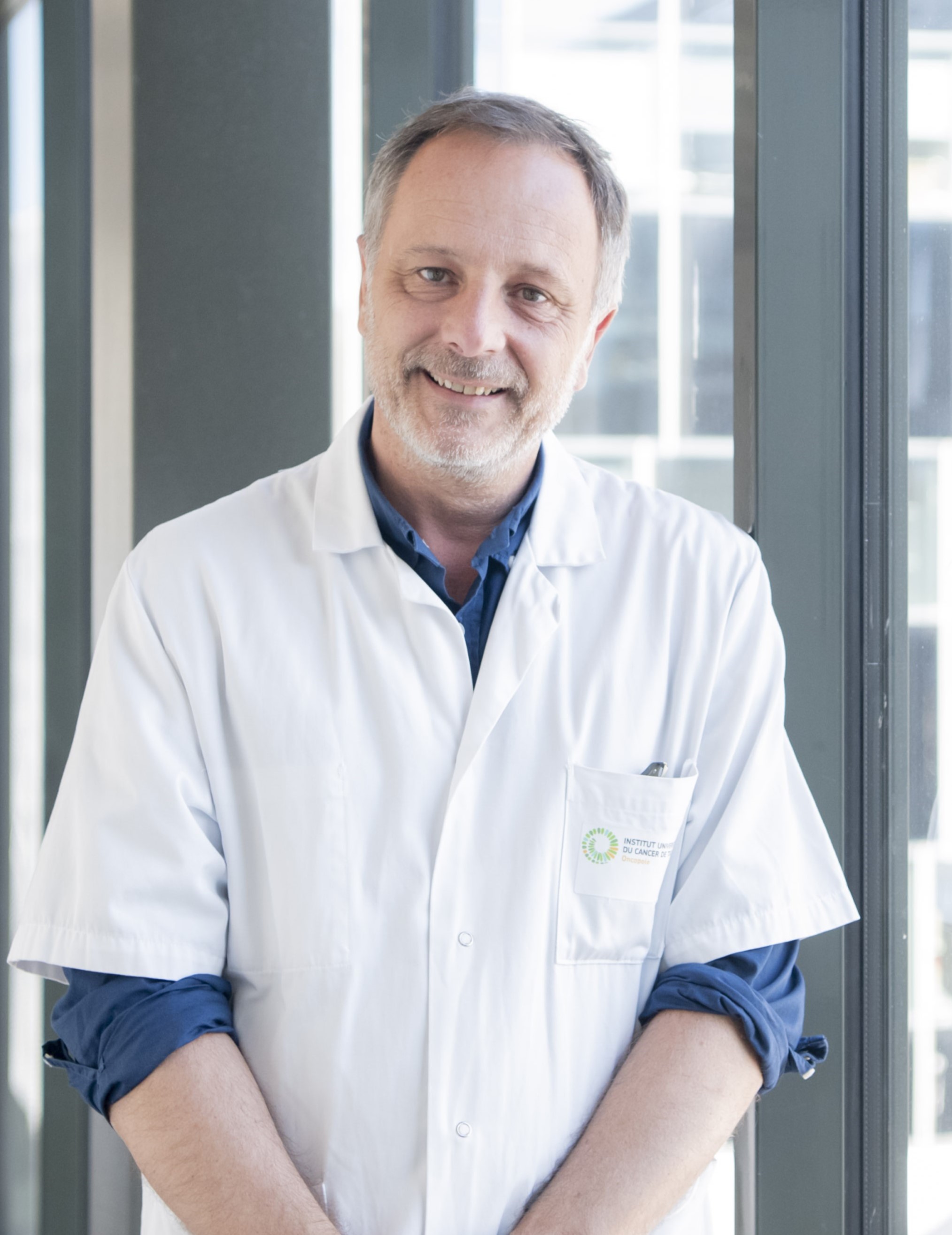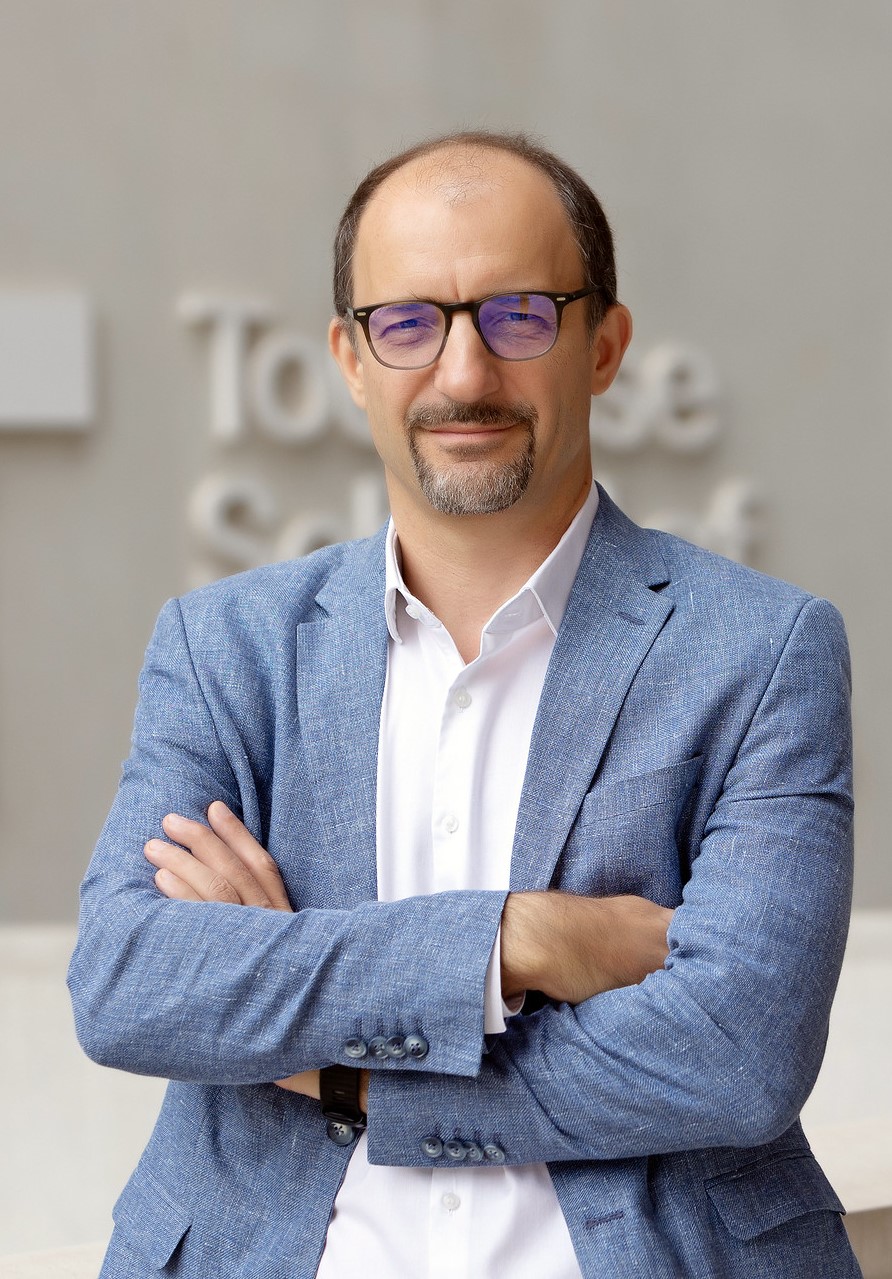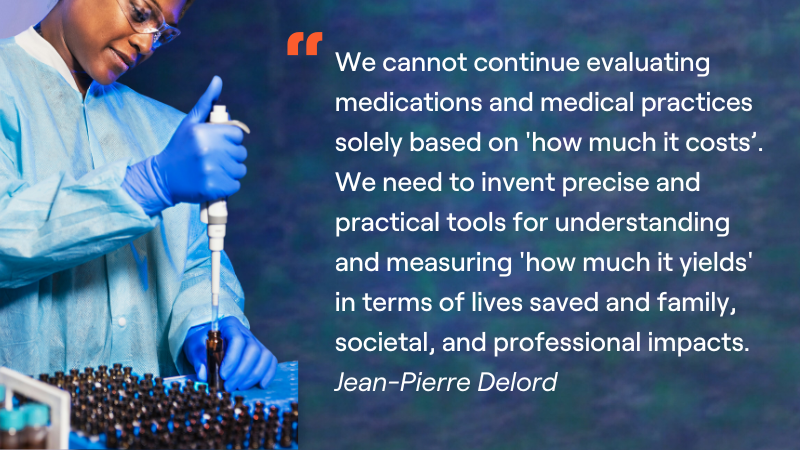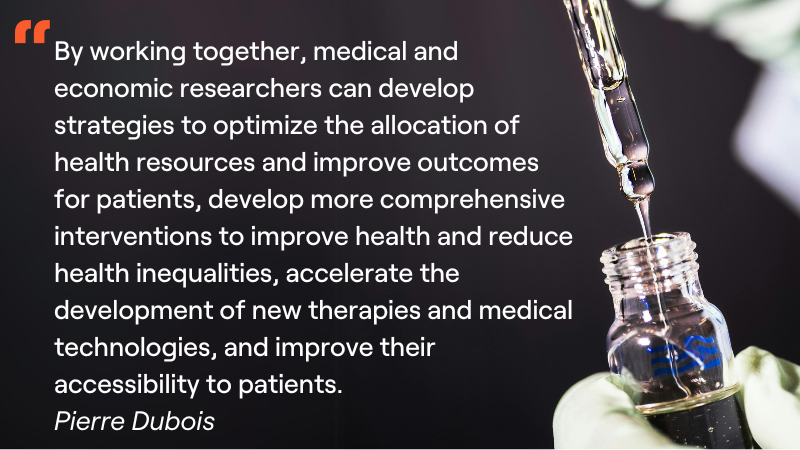
 Prof. Jean-Pierre Delord
Prof. Jean-Pierre Delord
CEO, Oncopole Claudius Regaud; Administrator, IUCT-Oncopole
Prof. Pierre Dubois
Director, TSE Health Center
IUCT-Oncopole and TSE teams have been collaborating on research projects since 2021, a partnership that was strengthened further by the signing of a two-year agreement in 2023. Jean-Pierre Delord and Pierre Dubois discuss how Toulouse’s thriving scientific community can lead the fight against cancer by combining its cutting-edge skills in medical and economic research.
What are the main missions of your institutions?
JP Delord: The role of IUCT-Oncopole is characteristic of a typical comprehensive cancer center, combining the goals of a hospital that treats cancer patients with those of a university center that welcomes students on different courses (care or research). We also aim to advance fundamental knowledge about the biology of cancer and hematological disorders, working in very close collaboration with the Toulouse Cancer Research Center (CRCT). Currently, more than 2,000 people work on-site in these three areas.
P. Dubois: TSE Health Center's main missions are to expand scientific knowledge in health economics and to share it with a wide audience. Our economists aim to develop research that can help public and private organizations find solutions to address health problems and improve the quality and accessibility of care. They study topics such as pharmaceutical industry regulation, health innovation financing, food and nutrition, and the evolution of the healthcare system.
How do you approach multidisciplinary research?
JPD: Collaboration between disciplines is essential for health and medical research. Our researchers must constantly ask themselves about the medical relevance of fundamental biological questions, as well as the biological relevance of medical questions. The world’s leading cancer research teams are all from campuses where this multidisciplinarity is highly accessible and operational. In recent years, the challenge has been to bring together disciplines that have until now been quite foreign to each other: "hard" sciences, experimental sciences, engineering sciences and medical sciences. Successful multidisciplinarity is also key to deciphering the complexity of living things through mathematical models or the engineering of "critical systems" for improving medical decision-making. Toulouse teams have several assets to offer in these areas. In evaluating our care or research practices, our way of thinking about the societal value of (medical) innovation has naturally led us to turn to TSE teams, who are world experts in this field.
PD: TSE brings together economists and researchers from other quantitative social sciences and related fields to address real challenges for today’s societies. Pioneering multidisciplinary research is encouraged both within TSE and externally with teams of researchers from partner institutions. Combining different perspectives and methodologies allows us to address complex problems and to stimulate innovation. As Director of this Center, I am convinced of the richness of this multidisciplinarity. This is not our first project of this type, following previous collaborations with IUCT-Oncopole and the ARPEGE project. TSE has been involved in this French multidisciplinary consortium since 2021, alongside French biotech Antabio, bioMérieux, and Hospices Civils de Lyon. It aims to develop a package of solutions to fight antibiotic resistance. These exchanges and interactions allow us to access valuable real-world data, refine our theories, and test the robustness of our models.
 What are some of the partnership's achievements so far?
What are some of the partnership's achievements so far?
PD: Our collaboration has intensified over the past two years. For example, TSE’s François Poinas1 has been working with a multidisciplinary team from the Oncopole, combining surgical, biostatistical, and epidemiological expertise. He focused on measuring surgeons' aversion to risk, using his knowledge of behavioral economics. I also think of the participation of Sébastien Gadat2, an expert in mathematics, in a project developed by the "Dynamics of molecular interactions of lymphocytes" team. This focused on predicting the need for treatment in patients with chronic lymphocytic leukemia. Partnership between our institutions has formalized these links with a common objective, conducting coordinated actions in pursuit of the Common Good.
JPD: There has been long-standing collaboration on methodological issues related to risk assessment and the measurement of "relevant" events over time. In essence, these are "fundamental" questions that require researchers to provide more effective tools for measuring the impact and effectiveness of therapeutic interventions. More recently, we have turned to more complex questions evaluating the value of medical innovation. Current measurement tools for medical teams – focused on "how much does it cost?" – are outdated. We need a vision not only of the cost but, above all, of the societal value of innovation.
What drives the latest Oncopole-TSE collaboration, launched in 2023?
JPD: This partnership is centered on the question of the value of innovation. Imagine that one day we invent a therapeutic vaccine against cancer. How can this type of "medical revolution" be most useful for our societies? How can we help doctors (and their patients) on one side, decision-makers on the other, to decide how much to invest in such programs? We need TSE teams: they know how to do.
PD: I am delighted to observe the increasing interest among healthcare professionals in the economic dynamics of innovation. Insights gained from stakeholders in the hospital sector are profoundly enlightening for us. The collaborative efforts between the Oncopole and TSE have wide-ranging implications that can benefit the entire sector.
What do you expect from this new partnership?
JPD: Collaboration between TSE and Oncopole is essential. We cannot continue evaluating medications and medical practices solely based on 'how much it costs’. We need to invent precise and practical tools for understanding and measuring 'how much it yields' in terms of lives saved and family, societal, and professional impacts. From this perspective, medicine is still in the Stone Age. Our colleagues at TSE must help us transition to the Iron Age, to an era of informed discussions about the efficiency of our practices and the major societal role of innovation.
PD: This partnership will enable us to conduct economic research on a major public health issue. It will strengthen the links between our two institutions and position Toulouse at the forefront of cancer research. This collaboration will refine our understanding of the disease, the context in which it strikes, confirm the relevance of research problems, provide data for testing hypotheses in real conditions... Our skills and knowledge are fully complementary. Above all, this partnership can help improve the efficiency and effectiveness of healthcare. By working together, medical and economic researchers can develop strategies to optimize the allocation of health resources and improve outcomes for patients, develop more comprehensive interventions to improve health and reduce health inequalities, accelerate the development of new therapies and medical technologies, and improve their accessibility for patients. .
 What are the implications for public health policy? What difficulties will you need to overcome?
What are the implications for public health policy? What difficulties will you need to overcome?
PD: It will be a huge challenge to improve the conditions of patients, the management by public authorities of such diseases, and the definition of prevention policies. An impact, even at the national level, would already be a great victory. We will need time to convince public authorities. Being able to state the problem is part of the way to solving it..
JPD: We want to contribute to changing the view of decision-makers. It will not be an easy path. Like any research project, you need to have a vision, good ideas, and to convince others that it is worth investment.
How will you share your progress?
PD: Several initiatives are planned for the dissemination of research publications and scientific outreach towards a wide audience. Our main tools include scientific journals, the TSE website, our newsletters for decision-makers, our organization and participation in international conferences on health economics, and targeted meetings with public authorities.
JPD: Both Oncopole and TSE know how to effectively contribute to the wide dissemination of knowledge through their work and publications. This is the vocation of academic teams: to produce new knowledge, new tools, and to share them. After that, the value of this knowledge depends mainly on how the political will to take advantage of it.
[1] F. Poinas: "Evaluation of anthropological, socio-cultural and psychological factors of surgeons practicing in oncology that condition the brakes in the evaluation of surgical innovation".
(Two-year project, begun in 2022).
[2] S. Gadat: Participation in a previous project developed by the IUCT team: "Molecular dynamics of lymphocyte interactions".
____________________________________________
Interview published in TSE Reflect, April 2024
Photos ©IUCT Oncopole (H. Ressayres), Studio Tchiz, Unsplash
